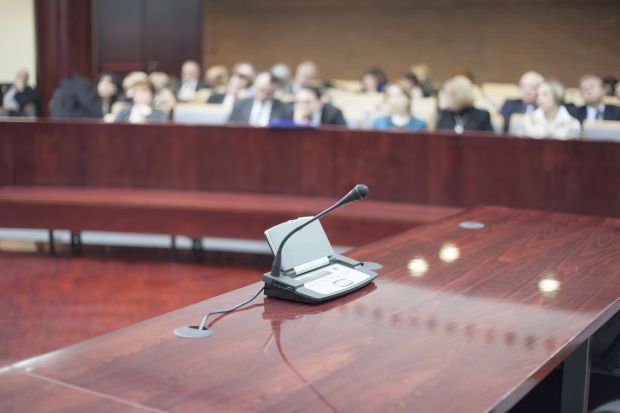A US judge has granted the federal government permission to cancel more than $6 billion (£5 billion) in student loan debt for some 200,000 students of various colleges, overwhelmingly in the for-profit sector, that allegedly deceived the students over their education and job prospects.
The San Francisco-based federal judge William Alsup approved the plan as a settlement to a class-action complaint filed against the US Department of Education during the Trump administration, then backed by the department after Joe Biden took office.
The agreement will “resolve plaintiffs’ claims in a fair and equitable manner”, the US secretary of education, Miguel Cardona, said of the decision.
It was unclear, however, if any of the 153 colleges named as responsible for the deceptions would be forced to cover the $6 billion cost rather than leave the bill for taxpayers. The settlement did not require the institutions to admit responsibility, and a Department of Education spokeswoman said officials had no comment on whether they would try to pursue restitution.
The resolution of that case comes as the Biden administration continues to fight separate court battles to uphold its general grant of some $380 billion in student loan forgiveness – announced in August – for tens of millions of borrowers.
A mix of rulings in various lawsuits filed by Biden opponents has left that general debt forgiveness process suspended, and the administration just this week announced plans to ask the US Supreme Court for a decision in one of them.
Loan repayments and interest accumulation for all student borrowers have been halted by the federal government since the early days of the Covid pandemic. The administration planned to lift those suspensions with the start of general debt forgiveness programme, though it is now considering further extensions while the court battles over the programme’s legality play out.
Among other aspects of the Biden administration’s ongoing focus on student debt relief, it also announced this week new steps to help borrowers seeking bankruptcy protection to include their federal student loan obligations in the process – a difficult manoeuvre that legally requires additional proof of financial hardship.
The 153 colleges whose practices led to the $6 billion settlement include such large chains as ITT Technical Institute and Corinthian Colleges, which have gone out of business, and DeVry University and the Art Institutes, which remain in operation.
The association representing for-profit institutions, Career Education Colleges and Universities, said it hoped the settlement would be overturned on appeal. The settlement “represents an unlawful overreach by the Department of Education and unfairly maligns over 150 institutions without any opportunity to respond”, the association’s president, Jason Altmire, said in a statement.
The case included another 64,000 students of the schools who were not granted immediate debt relief but whose requests for forgiveness will still be processed and assessed by the Department of Education.
Before the administration announced its main programme of $380 billion in general student loan forgiveness, it had already announced $34 billion in relief for students of Corinthian, ITT and other chains. The administration also has accelerated an existing government programme of debt forgiveness for students working public-sector jobs, wiping out more than $10 billion owed by 175,000 borrowers.
Such actions have generated emphatic criticism from congressional Republicans led by Virginia Foxx, who was due to take the chairmanship of the House education committee after last week’s elections.
The administration also is getting more broad-based criticism over its failure to ensure that the for-profit colleges reimburse taxpayers for the billions of dollars in lost loan money. Government accreditation processes have long granted such institutions access to the federal student loan programme, even amid persistent signs that many such colleges were conferring degrees with little or no value in the job market.
“We created the Wild West of education, with no sheriff,” said F. King Alexander, a former president of four universities including Louisiana State, “and now we’re going to have to pay twice for defaulted institutions.”
Register to continue
Why register?
- Registration is free and only takes a moment
- Once registered, you can read 3 articles a month
- Sign up for our newsletter
Subscribe
Or subscribe for unlimited access to:
- Unlimited access to news, views, insights & reviews
- Digital editions
- Digital access to THE’s university and college rankings analysis
Already registered or a current subscriber? Login








